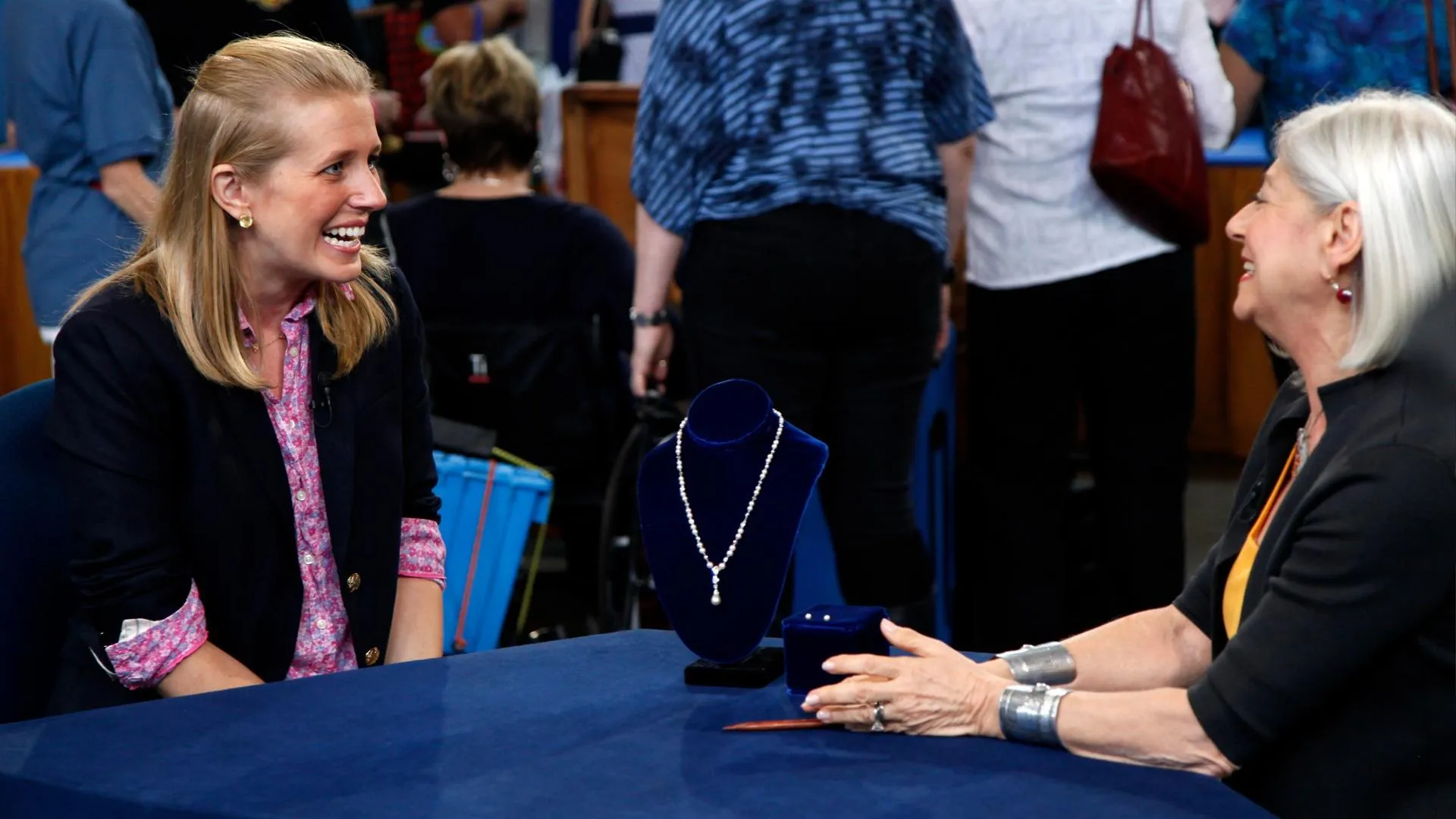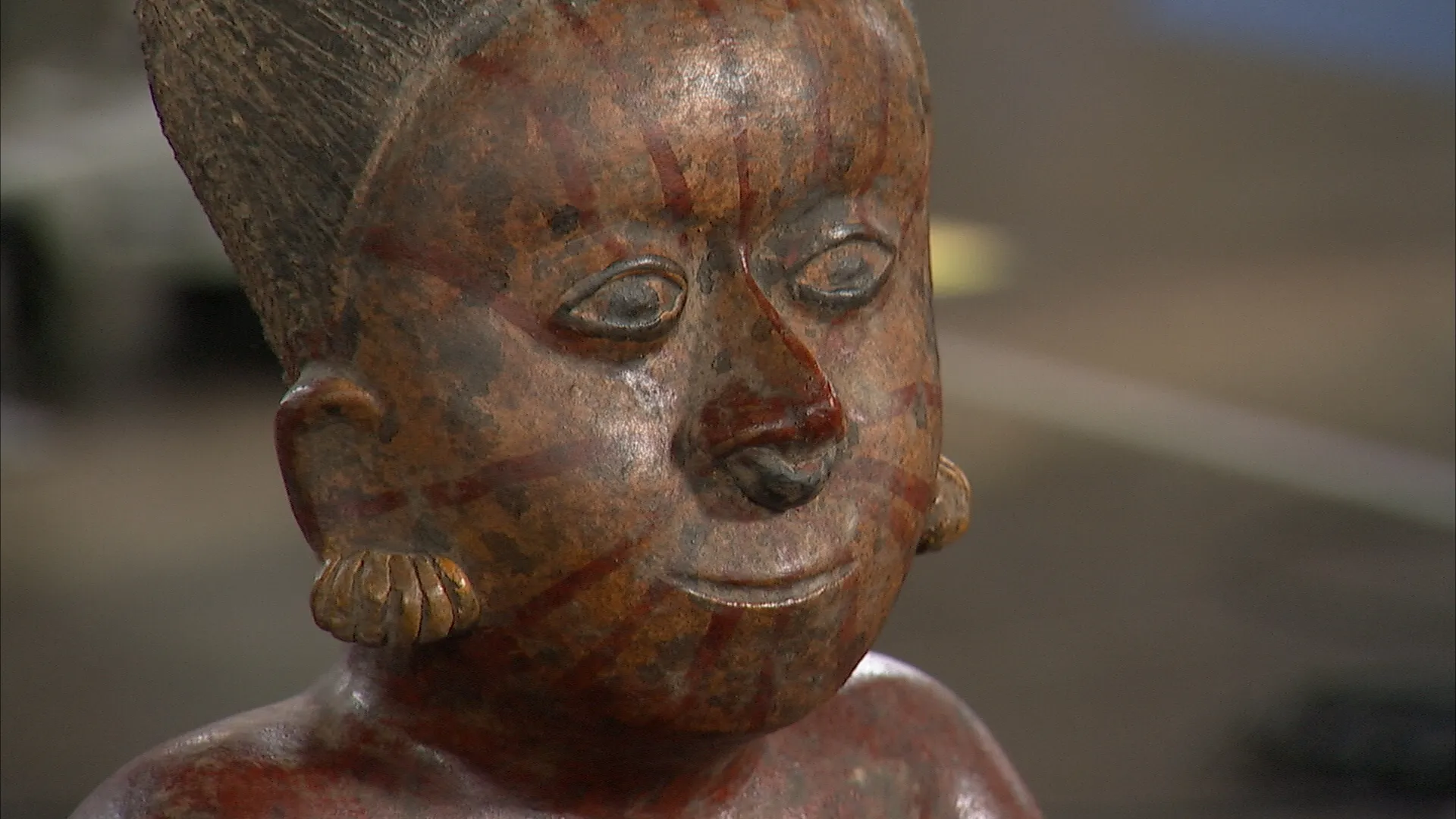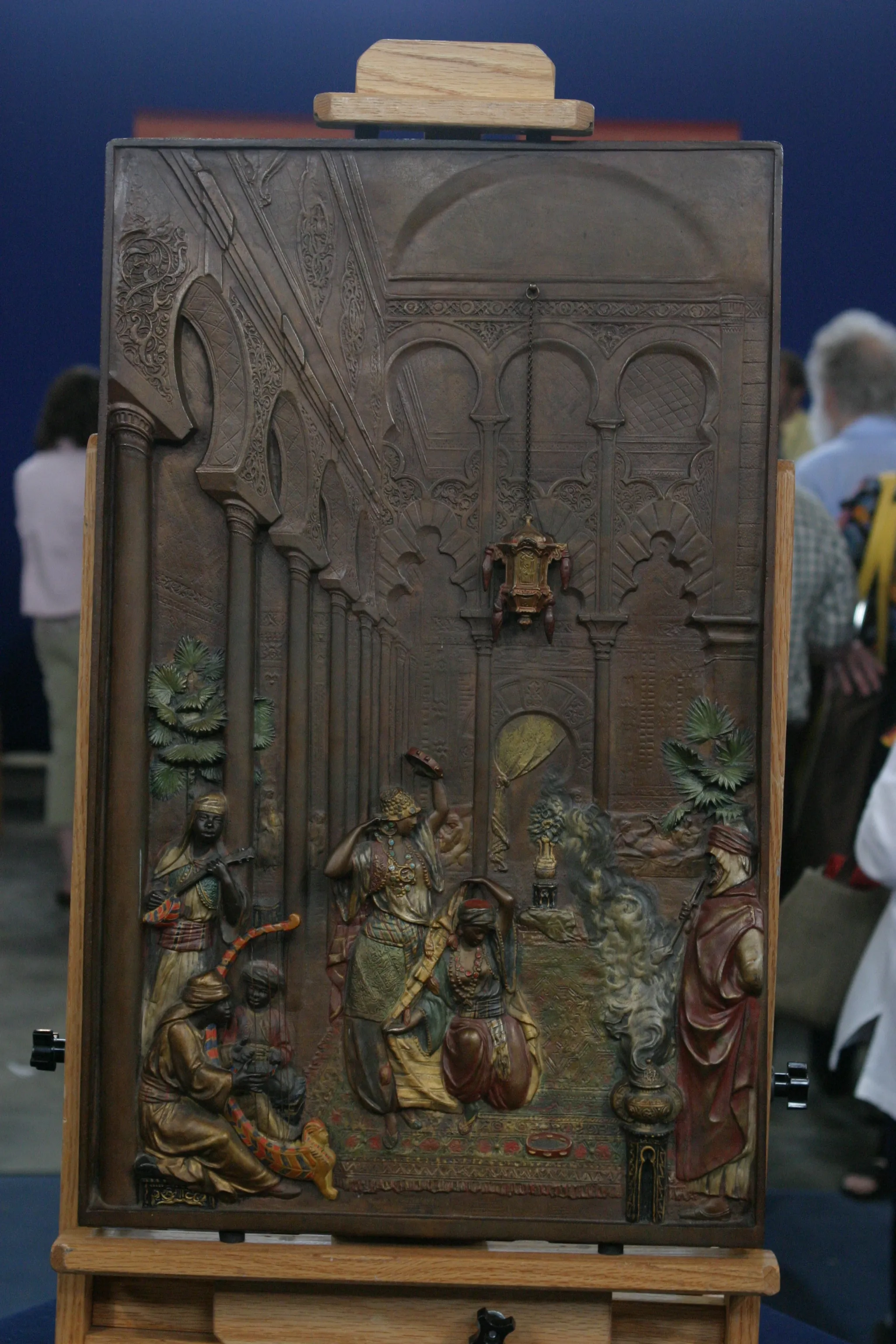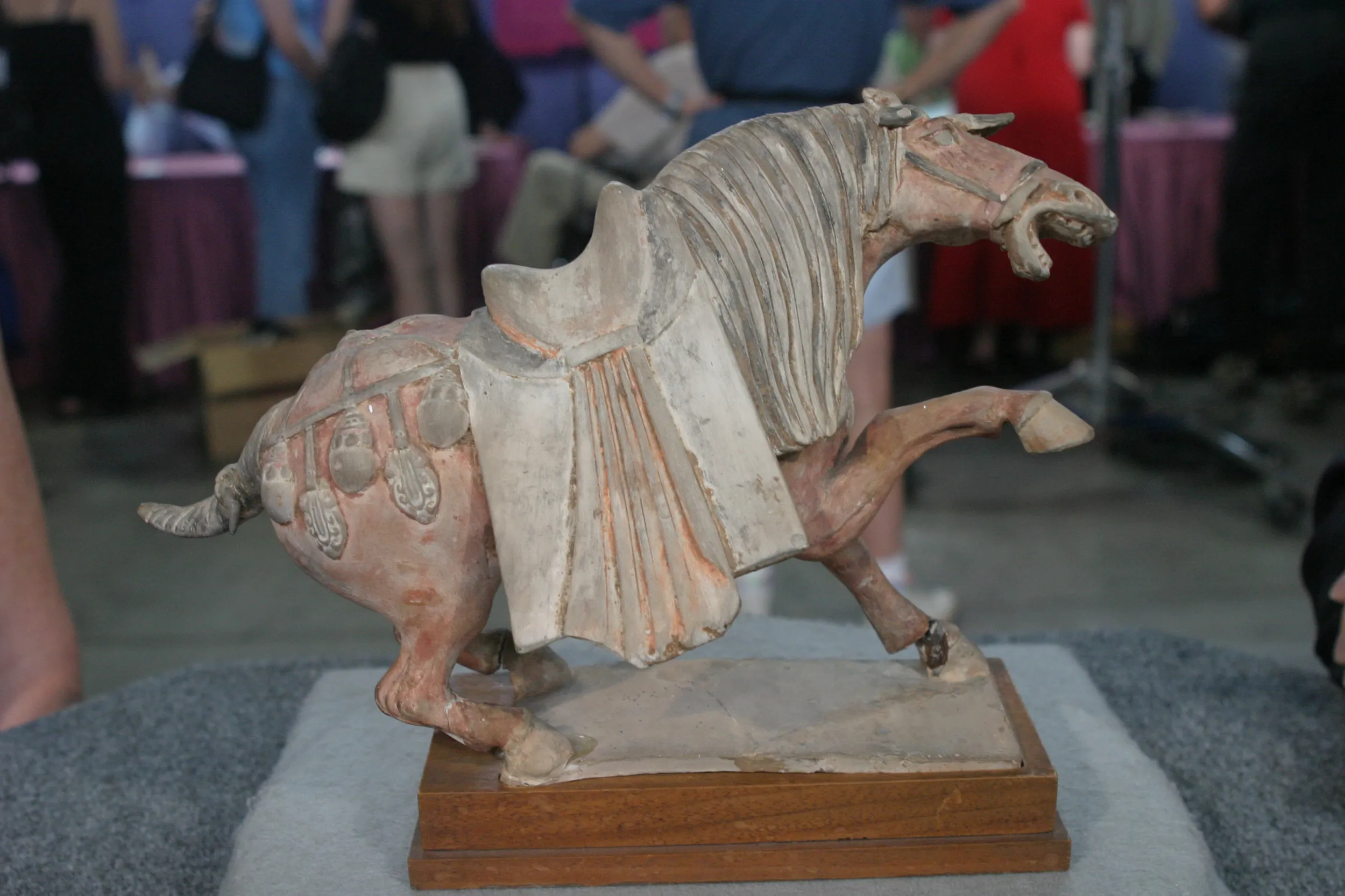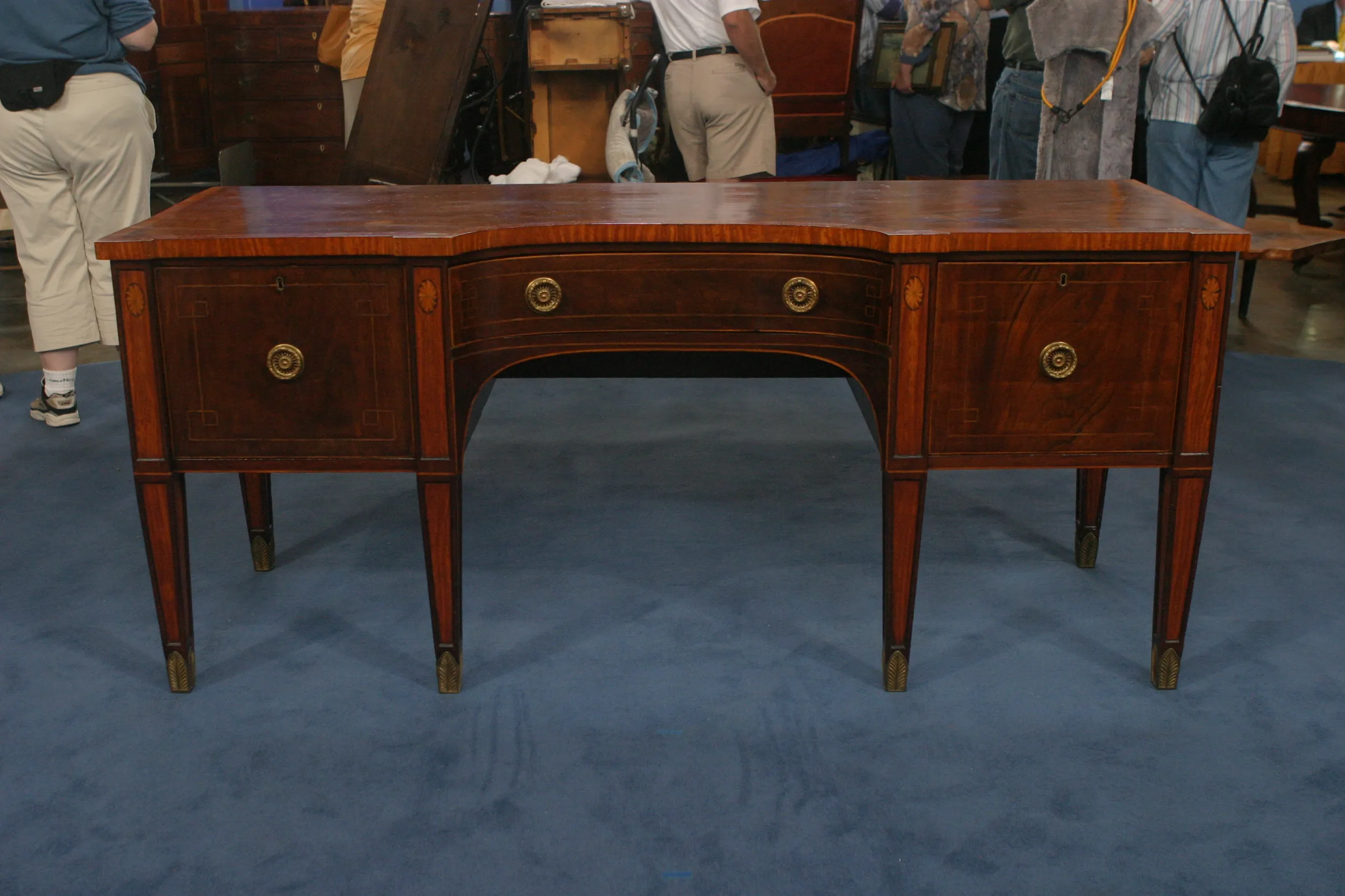HOST: There's a spectacular house in the town of Gloucester, north of Boston. It's Beauport, Sleeper-McCann House. And for many years, it was the summer home of influential interior decorator Henry Davis Sleeper. Outside, there's a beautiful view of the harbor, but inside, you'll find a kaleidoscope of colors, textures, and an elegant, sometimes playful, assembly of art and antiques. We asked Roadshow appraiser Stephen Fletcher to take us around this magnificent house.
APPRAISER: Mr. Sleeper was a lifelong bachelor. He was born right after the centennial of this country. He began building this house in 1907 and continued building it until he had a total of 40 rooms. And the only reason he stopped building the house is that he died in 1934. So I don't think he was done yet.
HOST: A lot of authentic and period pieces here, but not all of them.
APPRAISER: Not all of them. I think this is sort of his romanticized version of a colonial kitchen, and in fact, it's probably a little more comfortable than the real thing. Evidence of that would be these chairs that he had made because he saw a need for them. He couldn't find the real thing. Probably didn't make such a thing in the 18th century. So he saw nothing wrong with mixing it up a little bit. It's the sum total of what he put in here that creates this atmosphere. That was his talent, and he was far ahead of his time in approaching design from that standpoint. And he became a very successful designer, and it all started probably with this room.
HOST: This is just one room and we have more to see. Can we see more?
APPRAISER: Yes, we can.
HOST: Wow, look at this. Tell me about this banner, what's that about?
APPRAISER: I think it's remarkable that that has survived.
HOST: Well, Stephen, I can sort of guess the theme of this room. It has a nautical feel. It feels like we're on a ship.
APPRAISER: I think Henry Sleeper was fascinated with whaling and all the activities involving the sea. And at that time, there was renewed interest in Herman Melville's masterpiece, Moby Dick. And I think that also played an influence because these rooms have literary themes as well as historical ones. There are a lot of those marine associated things in the room, but also there are other things displaying his incredible talent for placement of objects.
HOST: Seemingly unrelated objects that have an aesthetic comfort that works.
APPRAISER: Exactly. And you have a beautiful example of folk art. And you say that this is... this is local. We think it's local. This is really a marvelous New England folk art carving. You can see that while this is a so-called primitive carving, in some respects, it's really quite sophisticated. He's got a tremendously strong face and expression, beautiful detail, and embellished with a wonderful variety of colors and even gilding. It has a terrific dry surface. In fact, this piece probably has been untouched for 80 years. We don't handle things here, but we're privileged, we're getting to touch this. I would think this was made somewhere prior to mid-19th century.
HOST: If someone were to find a piece of folk art similar to this from the same period with this sort of color and detail still intact, where would you put the value?
APPRAISER: Well, it's tough to come up with a number, but I think we could make some reasonable comparisons with other similar pieces, and I'd say probably at least $5,000.
HOST: Well, it's fantastic, as is this entire experience here at Beauport. Thanks so much.
APPRAISER: Yes, indeed.

